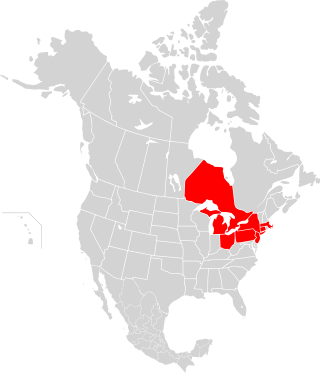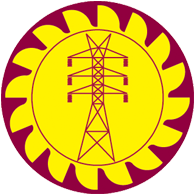The 2020 Sri Lankan blackouts were a series of electrical blackouts that occurred on 17 August 2020, beginning around 12.30 pm SLST (UTC+5:30) and lasting over seven hours. The nationwide blackouts occurred due to a transmission technical failure at the Kerawalapitiya Grid-Sub station. [1] [2] [3] The Ministry of Power appointed a special committee to investigate the root cause behind the blackout. [4]
The outage caused disruption in day-to-day activities of the public, including causing traffic congestion in Colombo due to malfunctioning of traffic signals and malfunctioning water supply services. [5] [6] [7] [8] [9] Power was restored to the south of the island relatively early, due to it being powered by the Samanala Dam. [10]
Initially, a spokesperson of the Ministry of Power claimed that the outage occurred due to a failure in the Yugadanavi Power Plant. [11] The Minister of Power Dullas Alahapperuma later stated that the outage would be resolved within a space of two hours but the restoration process was delayed for hours due to cascading failures. [12] The power was restored in most parts of the country including Colombo at around 8.30 pm and was regarded as the worst nationwide blackout faced by the country since 2016. [13] The blackout further aggravated the impact of the COVID-19 pandemic in the country. The blackout did not disrupt Bandaranaike International Airport, the main airport of the country, which was closed for months due to the COVID-19 pandemic. Hospitals, offices and other infrastructure had backup power generators. [14]
Sri Lanka's electricity demand is currently met by thermal power stations (54.59%), major hydroelectric power stations (33.50%), and wind farms (2.12%), small hydro facilities (8.01%) and other renewables such as solar (1.78%). [15] Sri Lanka as a whole faced major nationwide blackout during March 2016 which lasted for over eight hours. [16] Localised regional power cuts are common in Sri Lanka although nationwide blackouts are rare.
The blackout began when a three-phase fault at Kerawalapitiya thermal power plant took an unusually long time to disconnect from the Sri Lankan electrical system. During that time, the short circuit depressed voltages at the nearby Lakvijaya thermal power plant; both plants ultimately isolated from the Sri Lankan grid to prevent equipment damage. The missing generation induced a very rapid and severe decline in utility frequency that the network's protective devices could not arrest. [17]

The National Grid is the high-voltage electric power transmission network supporting the UK's electricity market, connecting power stations and major substations, and ensuring that electricity generated anywhere on the grid can be used to satisfy demand elsewhere. The network serves the majority of Great Britain and some of the surrounding islands. It does not cover Northern Ireland, which is part of the Irish single electricity market.

A rolling blackout, also referred to as rota or rotational load shedding, rota disconnection, feeder rotation, or a rotating outage, is an intentionally engineered electrical power shutdown in which electricity delivery is stopped for non-overlapping periods of time over different parts of the distribution region. Rolling blackouts are a last-resort measure used by an electric utility company to avoid a total blackout of the power system.
The 2006 Auckland Blackout was a major electrical blackout in Auckland, the largest city in New Zealand, on 12 June 2006. It started at 08:30 local time, with most areas of Auckland regaining power by 14:45 local time. It affected some 230,000 customers and at least 700,000 people in and around the city.

The Northeast blackout of 2003 was a widespread power outage throughout parts of the Northeastern and Midwestern United States, and most parts of the Canadian province of Ontario on Thursday, August 14, 2003, beginning just after 4:10 p.m. EDT.
The 2008 Zanzibar Power blackout was an extensive power outage on Zanzibar, Tanzania.

The Ceylon Electricity Board - CEB, was the largest electricity company in Sri Lanka. With a market share of nearly 100%, it controlled all major functions of electricity generation, transmission, distribution and retailing in Sri Lanka. It was one of the only two on-grid electricity companies in the country; the other being Lanka Electricity Company (LECO). The company earned approximately Rs 204.7 billion in 2014, with a total of nearly 5.42 million consumer accounts. It was a government-owned and controlled utility of Sri Lanka that took care of the general energy facilities of the island. The Ministry of Power and Energy was the responsible ministry above the CEB. Ceylon Electricity Board (CEB), established by the CEB Act No. 17 of 1969, was under the legal obligation to develop and maintain an efficient, coordinated and economical system of electricity supply in accordance with any licenses issued. The CEB was dissolved and replaced by 12 successor entities under the 2024 Electricity Act.

The 2010 Chile blackout was an electric power outage that affected most of Chile on March 14, 2010. It began at 8:44 pm on Sunday and continued into the next day. The power was restored in a few hours in some areas, and by midnight in most areas, except in the Biobío Region.

An Internet outage or Internet blackout or Internet shutdown is the complete or partial failure of the internet services. It can occur due to censorship, cyberattacks, disasters, police or security services actions or errors.
Several major power outages have occurred in the country of Malaysia.

Two severe power outages affected most of northern and eastern India on 30 and 31 July 2012. The 30 July 2012 blackout affected over 400 million people and lasted about 13.5 hrs. During that period, it was the largest power outage in history by number of people affected, beating the January 2001 blackout in Northern India. Similar conditions caused a blackout on the next day, which remained the largest power outage in history as of June 2024. The outage affected more than 620 million people, spread across 22 states in Northern, Eastern, and Northeast India. An estimated 32 gigawatts of generating capacity was taken offline. Of the affected population, 320 million initially had power, while the rest lacked direct access. Electric service was restored in the affected locations between 31 July and 1 August 2012.

The Yugadanavi Power Station is a large oil-fired power station in Sri Lanka. The 300 MW power station is located in Kerawalapitiya, in the Western Province of Sri Lanka.
The 2019 Sri Lanka electricity crisis was a crisis which happened nearly a month from 18 March to 10 April 2019 faced by Sri Lanka caused by a severe drought that depleted water levels at hydroelectric plants. Sri Lanka experienced rolling blackouts for three to five hours per day except on Sundays in all parts of the island nation at different time schedules that started from 24 March 2019 to present. This is regarded as one of the worst blackouts confronted in Sri Lanka since 2016 and the longest ever blackout recorded in history of the country. However it was revealed that the main electricity providing institution Ceylon Electricity Board had restricted the power supply to almost all regions of the country without proper prior notice and implemented a time schedule unofficially from 24 March 2019. However the Ministry of Power and Renewable Energy revealed that it didn't grant and approve permission to CEB to impose power cuts.

The 2019 Argentina, Paraguay and Uruguay blackout was a massive power outage that struck most of Argentina, all of Uruguay, and parts of Paraguay on 16 June 2019, leaving an estimated 48 million people without electrical supply.
This page lists notable events that took place during the year 2020 in Sri Lanka.
The 2023 Pakistan blackout was a power outage that occurred across the entirety of Pakistan on 23 January 2023. This was the second major grid breakdown in Pakistan in 2 years, and the second largest blackout in history. In the majority of the regions, the blackout lasted about 12–13 hours while in some areas such as rural communities, it lasted even longer, ranging from 24 to 72 hour long outages.
The 2014 Bangladesh blackout was a power outage that occurred across Bangladesh on the morning of November 2, 2014. The blackout lasted for almost 10 hours.
The 2023 Sri Lankan blackouts were a series of nationwide electrical blackouts which occurred in Sri Lanka on 9 December 2023. Blackouts began at around 5.00 pm SLST (UTC+5:30) and lasted for over three hours. The nationwide blackouts occurred due to a systematic failure in the main supply chain and due to a breakdown of the Kotmale Biyagama transmission line.
The 2024 Lebanon blackout is an ongoing total nationwide power outage across Lebanon that began on 17 August 2024 due to the state electricity company of Lebanon, Électricité du Liban, running out of fuel reserves for its power plants. The blackout led to widespread water shortages due to the inability of Lebanese water corporations to pump water in effective amounts, as well as the halting of several fundamental institutions across Lebanon, including, wastewater treatment systems, ports, airports, and prisons.
A series of interruptions to the nationwide electrical service of Cuba occurred during the months of February, March, October and December 2024. The blackouts began in February 2024 with power outages that affected nearly half of the country. In March, further blackouts caused widespread protests. On 5–6 October, a third of the country experienced outages. From 18 to 22 October 2024, a total nationwide blackout occurred due to the failure of the Antonio Guiteras Power Plant. During the October shutdowns, the Cuban government announced energy-saving measures. The blackouts were the most severe living crisis that the country has experienced since the dissolution of the Soviet Union in 1991.